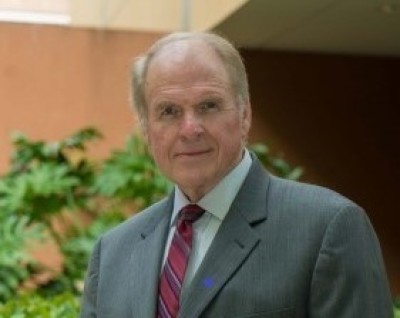God, the nations, and nationalism (pt 1)
Nationalism and globalism are on a collision course and the future of civilization is at stake.
“Progressive nationalism ... seeks to impose a highly specific and controversial vision of social order,” warned George Washington University Professor Samuel Goldman, as reported March 16 in The Christian Post by Ryan Foley.
Meanwhile, Pope Francis proposes a new world order of globalism to counteract all the rising nationalisms.[1]
“The world will never be the same again (because of the COVID pandemic),” said the Pontiff. However, “it is precisely within this calamity that we must grasp those signs which may prove to be the cornerstones of reconstruction.”

Pope Francis lent his stature to the view sweeping many nations that history is in a “reset” phase. It would seem that the COVID pandemic had the same effect as Noah’s Flood — the destruction of an old order necessitating the construction of a new world system.
The Pope gave chilling detail in a speech to the Pontifical Academy of Social Sciences in May 2019: “When a supranational common good is clearly identified, there is need for a special legally constituted authority capable of facilitating its implementation.”
In the speech, the Pope suggested that what is needed is a globally authoritative body that could counteract the “growing nationalism which neglects the common good.”
There are many others who identity with Christianity, including Catholics, Orthodox, Protestants, Evangelicals, Pentecostals, and Charismatics who are disturbed by the Pope’s apparent favoring of globalism to resist extremes of nationalism.
It is naive to be blind to the extremes of globalism.
Whose “side” is God on in the midst of this cacophonous din between intensifying nationalism and looming globalism?
This is an important question in a nuclear world where trembling hands are on buttons that, pushed, could wipe out whole civilizations and the nations within them. There is no reassurance that in Trump’s waning hours Nancy Pelosi was anxious that Trump not have access to nuclear codes that were about to be turned over to Joe Biden.
“God is on our side,” said Donald Trump in the heady early days of his presidency. The belief of some in the Biden White House suggested that the Democrats were favored by the pandemic creating conditions favorable to his election.
“God is on our side,” said Maxine Waters, as she exhorted her allies to “push back” if they encountered a Trump cabinet officer.
"I believe today that I am acting in the sense of the Almighty Creator,” said Adolf Hitler as he contemplated the genocide of the Jewish race — marked in the Bible as the Lord’s chosen people.
“God is on your side?” Joseph Stalin mockingly asked Winston Churchill in 1943 at the Tehran conference. “The devil’s on my side; he’s a good Communist,” said the Soviet dictator.
Many nations and their leaders across history have claimed God’s special support. Recent times have raised the question to new levels of intensity. This, in the view of some critics, has devolved into a nationalism that asserts one worldview and the institutions arising from it as superior to all others, and therefore the right — indeed, the mandate, divine or otherwise— to bring the rest into conformity.
This is why distorted nationalism is a matter of concern.
However, the Bible is clear that, while God may not be a “nationalist” in the current use of the term, He does love nations. In fact, nations are crucial in His great plan for history.
The Creator’s desire for all peoples is that they enjoy the attributes of His Kingdom —righteousness-justice, peace, and Spirit-given transcendent joy. (Romans 14:17)
Thus, God sees nations ethnologically rather than politically. That is, He sees people rather than national institutions.
“This Gospel of the Kingdom will be proclaimed in all the inhabited earth for a testimony to the nations,” says Jesus in the Greek rendering of Matthew 24:14. And the word used for “nations” there is ethnesin, from which English gets “ethnic.” Clearly God’s view of a nation is not focused on geo-politics but humanity. Nations are clusterings of His image-bearers in a shared environment to facilitate proclamation of the Gospel of the Kingdom.
In Athens, the Apostle Paul tells the philosophers that God Himself has “made of one blood every nation — again, ethnos (another form of ethnesin) to dwell on earth.” (Acts 17:26)
Nations are important in God’s Kingdom plan because they are crucibles into which the Kingdom message can be poured. The people do not have to be the same racially, but a diverse humanity sharing a common worldview, and a life experience that facilitates community whose members can receive, learn, bear witness, and serve one another in relationship.
The New Testament church ideally is at the heart of this dynamic lifestyle because it is the core body that flourishes through the “fellowship of the saints” and can radiate such loving care into the crucible of the nation.
Globalism is not the answer to nationalism, but God’s Kingdom is. And nations play a crucial role in its advance in the world until Christ returns with the fulness of His manifest reign over all the nations.
Paul himself said it in his Athenian discourse: “(God’s) purpose was for the nations to seek after God...” (Acts 17:27 NLT)
Let our “nationalism” be that of the kingdom of God.
We explore the vital role of nations in the next article in this series.
[1] He surfaced this proposal in a series of interviews with Domenico Agasso that became a recently published book, God and the World to Come.
Wallace B. Henley’s fifty-year career has spanned newspaper journalism, government in both White House and Congress, the church, and academia. He is author or co-author of more than 20 books. He is a teaching pastor at Grace Church, the Woodlands, Texas.






















